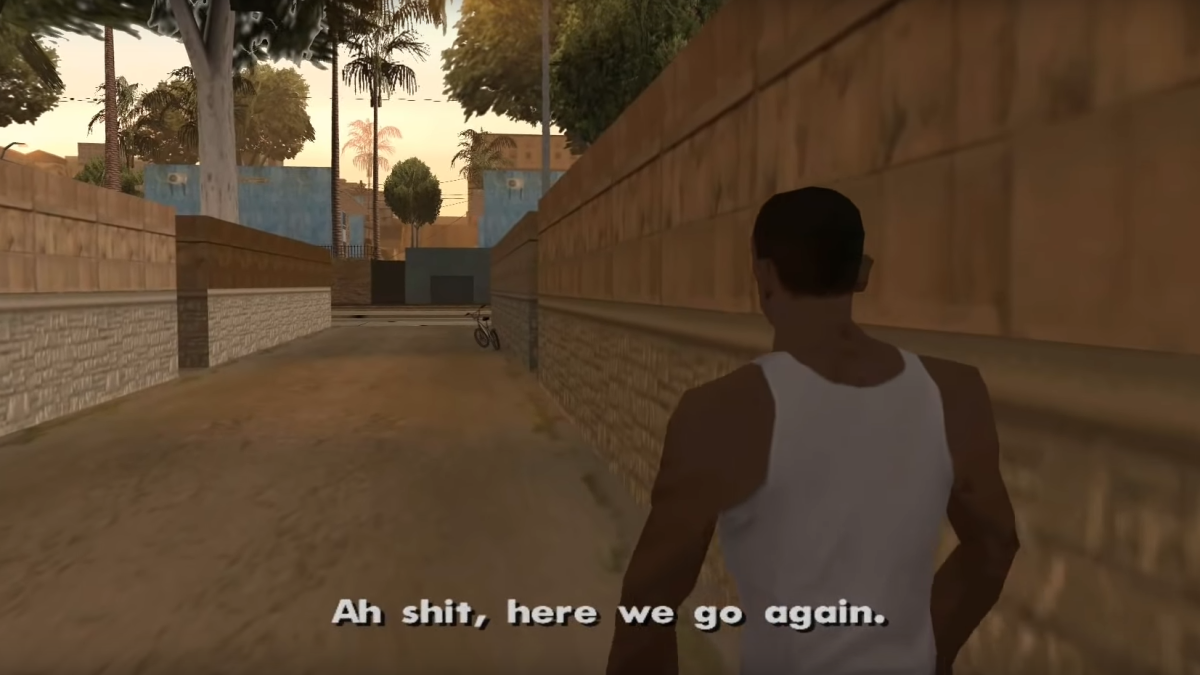
Today, Grand Theft Auto (GTA) is not just a super-successful video game series: it is the most profitable media product in the history of mankind, overtaking other films, books and games. GTA V alone has already sold 140 million copies and brought the creators, Rockstar, over $ 6 billion in revenue. And it seems that it has always been this way: charged with a spirit of rebellion and going against the generally accepted rules, Sam Hauser's team won victory after victory. Each new part of GTA (like the legendary Red Dead Redemption series ) became a recognized masterpiece and helped the growth of the games industry as a whole. And Rockstar's obsession and stubbornness has inspired thousands of developers around the world.
But this was not always the case. And it's not about the time when everything was just beginning. Even in an era when GTA has long become a legend and a locomotive of game development, developers have managed to create disastrous situations that could not only bury the series and the Rockstar studio itself, but also strike the entertainment industry.
We'll tell you about one of these failures - a story with the intriguing name Hot Coffee.
Background
By 2005, game studio Rockstar had a long cult reputation. Gamers marveled at how rock stars from release to release were breaking stereotypical notions of gaming and entertainment, creating daring projects with huge and compelling virtual worlds. GTA gave players more freedom of action, combined with adult themes from action movies and books, and thereby expanded the audience of games that until recently were perceived as fun for children and computer geeks.
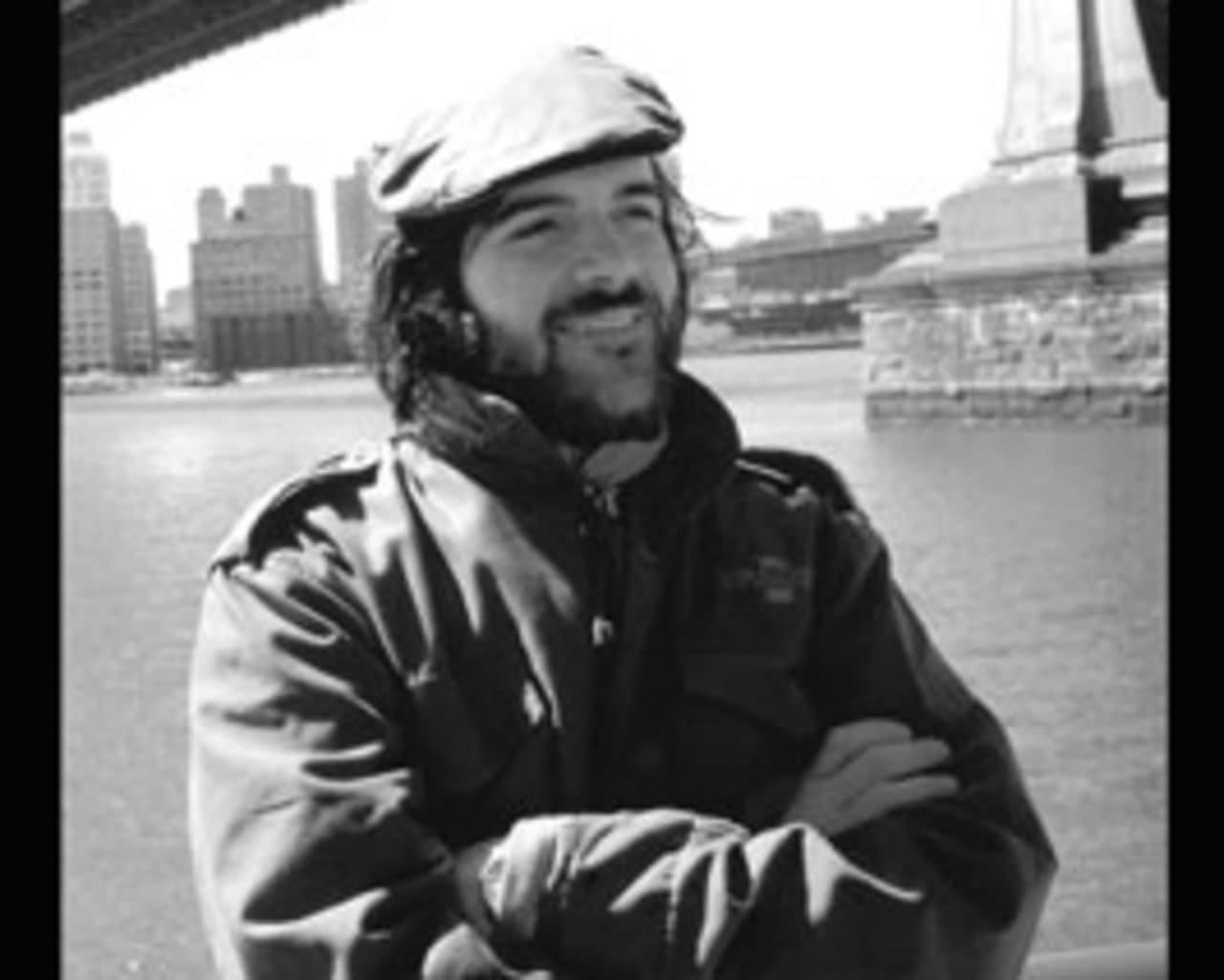
Sam Hauser
Rockstar has always been striving to go down the path of a revolutionary expansion of the gaming experience - from the moment Sam Hauser, the young manager of BMG Interactive, learned that the guys from the DMA studio came up with a cool gamewhere you can play as the bad guy and steal vehicles. The first GTA was unconditionally losing to the leaders in terms of graphics; in 1996, Tomb Raider came out with a three-dimensional beauty Lara Croft, against the background of which 2D chases with a top view seemed archaic even then. And if it were not for the conviction of the team, which relied on unusual gameplay, physics and artificial intelligence, which gave players the feeling of a living city, work on the game would have been closed.
The PR campaign of Grand Theft Auto was also hooligan, to match the game itself. Through extensive discussion of the brutal crime game at the very top levels, many potential players have learned about it. Word of mouth and newspaper articles about the “outrageous GTA” did their job: published under the slogan “We despise the government, policemen and parents” created a special aura around the brand.
Official PlayStation Magazine « , , PlayStation». Computer Games Magazine : « , . , ». «» .
The game did not become a super hit, but more than paid off: by 1999 it had sold over a million copies. The GTA fanbase grew, so when the studio released the demo version of the second part of the series, in three weeks it was downloaded by over 1.2 million users. Two things were supposed to be a highlight of GTA 2: firstly, the action was transferred to the future, and secondly, for the first time the player was no longer just in a copy of the city, where random non-player characters wandered back and forth. Instead, in GTA 2, a gang system was first implemented - roughly the same that ruled megacities in popular action movies: each with its own criminal code, style of behavior and zone of influence. For that time, the immersion must have been incredible, like The Truman Showfrom the world of games, but ... Despite the optimistic forecasts, GTA 2 did not live up to the expectations of players and creators. Someone did not go out of date 2D graphics, and someone did not succumb to an overly provocative promo campaign, in which the creators tried to go beyond the boundaries of decency and called for “stealing a disc with a game” from the store. The social context also played a role: in the same 1999 in the state of Colorado there was a tragedy known as "Columbine"(two teenagers committed mass murder at school), and, as it turned out, one of the factors of the crime was the passion for violent video games. After this tragedy, not only did the conditions for selling games to minors tighten (which, of course, reduced the revenue of developers and publishers), but virtually the entire industry was in the status of a suspect.
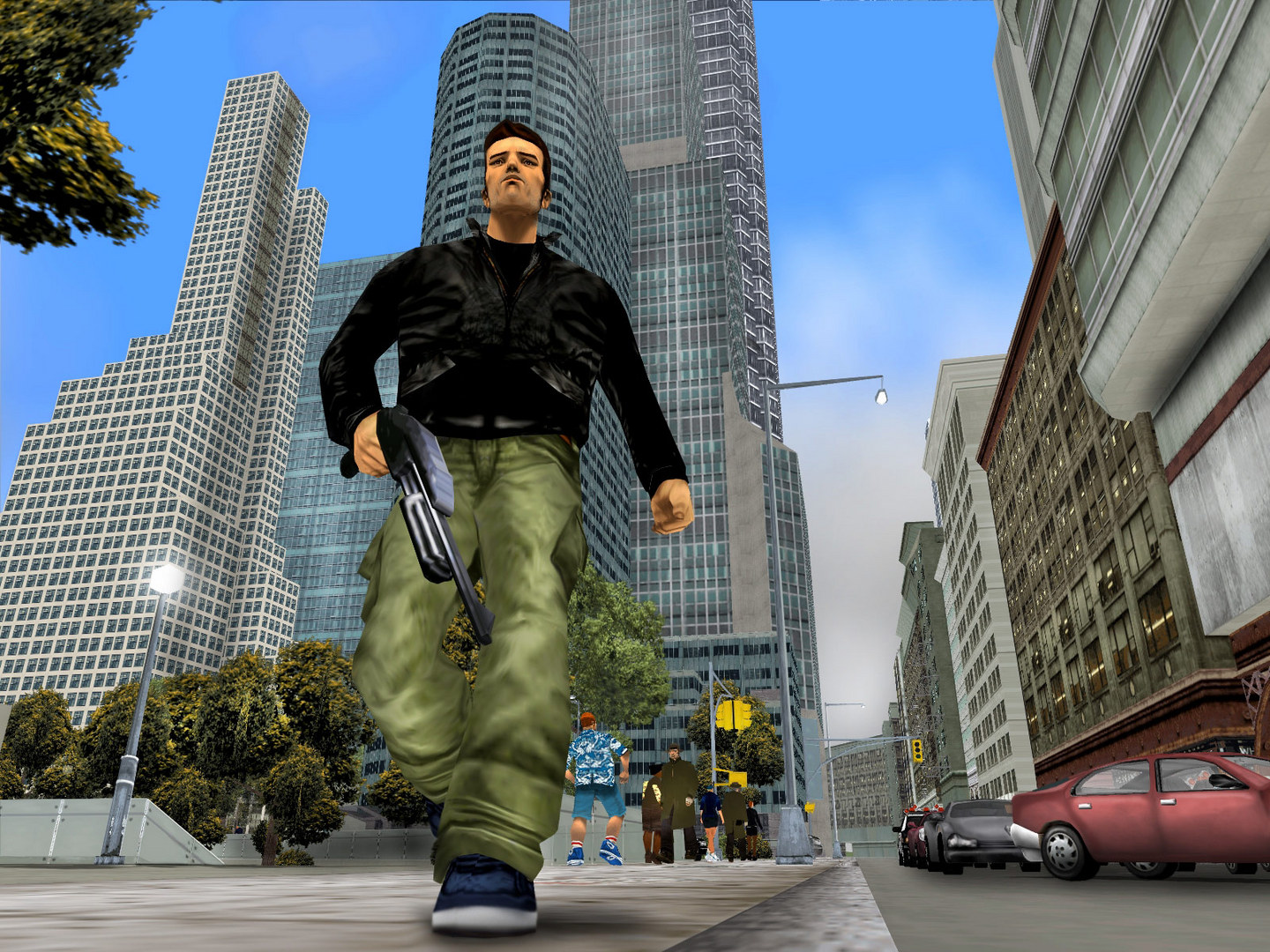
And this did not stop Rockstar from making the new game in the series a real hit. GTA III was created as the first interactive movie about bandits - with an outstanding storyline, gorgeous voice acting with Hollywood stars, cool graphics (thanks to Playstation 2). But the main thing is with a new level of freedom and opportunities for exploration, which until recently seemed inconceivable in games.
GTA III . . GameSpy « ‹…› PS2». GamePro , « , : , ». Game Informer , GTA III « , ». Entertainment Weekly , « ( )».
The successful release of GTA III was followed by the equally successful release of GTA Vice City , which sold a record 1.4 million copies in its first two days. The studio just bathed in money and was at the peak of global popularity, expanding the staff and, with the help of parent Take Two, absorbing other studios. It seemed that what Sam Hauser had once dreamed of had come true - his company became the flagship of the gaming industry!
But this is where the hot coffee story began.
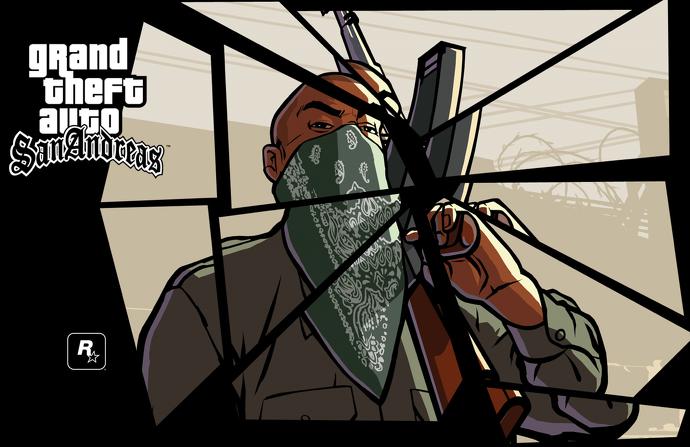
The crime...
GTA San Andreas was the final part of the trilogy launched by GTA III. Guided by the same hooligan principles, the Rockstar team once again created an extraordinary product that exceeded the expectations of gamers. A detailed image of gang warfare and criminal ghettos, unprecedented drama, a huge world the size of an entire state, more than two hundred hours of gameplay and a black protagonist - even part of this would be enough to once again be in the center of attention for a long time and show how games should be made. Rockstar PR people have already froze in anticipation of responses from politicians and citizens, outraged by the way the game depicts an American world full of racial conflicts and contradictions. The puncture was still fresh in the memory when the studio had to make a public apology for the first time for calling one of the characters to "kill the Haitians"- and now Rockstar prepared materials in advance, before the release, to answer all such claims.
But San Andreas also had another “novelty” for players - sex. By this time, violence in games had already become commonplace, but sexual relations were still beyond the bounds of what is permissible. Raunchy jokes, soft porn, strippers - in fact, this is all the "sex" and was limited.
Sam Hauser decided to crack this unspoken ban as well. San Andreas not only showed the player very frank scenes, but also gave the opportunity to “participate” in them using a gamepad in a special mini-game. The head of Rockstar was convinced that there was nothing illegal about this: “Everything in the game is completely normal for an adult (of course!), And therefore we must continue to promote our ideas so that our art form is respected and perceived as universal entertainment. platform, we have always strived to push the boundaries and must continue, ”he wrote in a letter to a colleague.
And, indeed, no one in the United States forbade the development of a game containing scenes with nudity, sex - and at least with anything "grown-up". Nobody forbade the studio to release such a game for sale. But ... only with the appropriate rating. And this was the stumbling block for Rockstar.
The fact is that the rating system ( ESRB) has been working in the United States for quite some time: every product (including video games) was labeled according to the age at which (as experts believed) a consumer could buy it. Children's games were rated EC, E, E10 +, teen games were rated T and M, and explicit or violent adult games were rated AO - "Adult Only". However, in the early GTA era, ratings were not a guide to action for distributors and retailers. Children could easily buy (and sellers could easily sell them) products marked as AO, not to mention the softer "M" rating.
But the situation has changed. Now, following the tragic events that the public and politicians have associated with violence in video games, compliance with the rating has become much more stringent. Sexual content automatically implied an AO rating for San Andreas, which led to a real commercial failure. Not only did Rockstar lose more than half of its distribution channels in this case, but the leading retailers would also refuse to sell the game. And in addition, a game with such content and rating was not allowed to the shelves by many foreign countries.
Rockstar has fallen into a trap. The studio was making games for adults, and San Andreas had a lot of adult scenes - but a real "adult" rating would have led to its collapse and subsequent closure. The situation was complicated by the fact that there was very little left before the announced release, and there was simply no time even for a cardinal rework of the game in accordance with the soft M rating.
And Hauser made a decision. The studio agreed to the commercial viability requirements and removed all sexually explicit content from the game from the gameplay. But at the same time, whether really because of time pressure, or because of laziness, the content itself actually remained in the game. Frivolous scenes for which the game would have received an adult rating, although in a locked, hidden form, were still present in the product that users received on discs.
In this form, the new part of GTA went for a rating - and received the coveted letter "M": after all, the ESRB rules did not require showing episodes and scenes that were closed from users. The sales of the game were now not threatened by anything serious. San Andreas became another hit with 5 million copies in the first two months and the title of the most successful game for the Playstation 2. Everything was just great, and the studio management seriously thought that now it is possible to release an add-on or patch with an AO rating. which will unlock 18+ content.

Patrick Wildenborg
And then what happened was what should have happened. For a long time, a large community of modders has formed around GTA, who created their own versions based on official builds. Rockstar didn't mind: on the contrary, mods increased sales and positively affected the popularity of the game - but, as it turned out, underestimated the level of their technical skills. Because it was the modders who, a few months after the release, revealed what the developers had hidden from the rating agency.
On June 9, 2005, Dutch programmer Patrick Wildenborg posted a mod called “Hot Coffee” on his website. The name comes from one of the hidden "adult" mini-games: in the release version, the scene ended with an invitation to the character for coffee, and in the original (which the mod and unlocked) this invitation was followed by a frank interactive episode.
The news instantly became a sensation - a "coffee gate". And while hot fans were downloading the mod together, and politicians were giving interviews, the prospect of being outlawed loomed in front of Rockstar and Take Two. After all, it turned out that the studio's management deceived the state and consumers, deliberately hiding from the rating system the presence of scenes for adults in the game. And if so, then neither the developers of San Andreas, nor the rest of the game studios could no longer count on leniency. Now they will not be trusted: every new product must undergo a thorough analysis, and any attempt to bypass the rating should be punished to the fullest extent. This would be a powerful blow to the entire industry.
And Rockstar disowned Hot Coffee. On July 12, 2005, in an official appeal, the studio stated that it had nothing to do with the sexual content contained in the fashion. There were no adult scenes in the original game, the letter argued - they are all the result of illegal use and modification of the source code by "hackers". Thus, instead of honestly and clearly voicing the real picture, the studio decided to frame the modders.
The decision was unfortunate. Firstly, the press release turned a significant part of modders and loyal users against Rockstar, showing that in fact the studio is not so cool and prefers to hide behind the backs of players in tough situations. Secondly, independent analysis that was in the hands of the ESRB confirmed that sexual content was indeed present in the original version of the game, including the console edition, and was not the result of modder interference. Rockstar has been caught cheating again ...
... and punishment
On July 20, the ESRB revoked the M rating for San Andreas and demanded that all of its retail sales cease. The game became the first in the GTA series with an Adults only rating.
- Some stores, including large retail chains, returned copies of the game to the developer with the requirement to bring it into compliance with the law.
- ( ) San Andreas , , .
- . , - , , . 85- , , Rockstar .
- , “”, , .
In August, Rockstar released a patch to disable Hot Coffee and announced that it was recalling all non-patch copies. But due to returns and refusals, the studio suffered significant losses - the process of replacing the game with a version with a new rating and a patch alone cost $ 25 million, and the company's expected profitability was halved.
Reputational losses were no less serious. The deceivers were attacked not only by the state and public activists accusing the studio of secretly distributing pornography. The behavior of Rockstar was also condemned by representatives of the gaming industry, who, because of this whole story, also became suspicious of duplicity and deception. Game Designer Warren Spector, the developer of Ultima, System Shock and Deus Ex, stated: “GTA is a gang simulator and nothing more. I would really like these guys to direct their talent to something else. Something that would enrich the culture, not trivialize it. [...] We are now a dead-end branch for world culture. "
Rockstar's stardom and consistency was bursting at the seams. Against the backdrop of a mountain of lawsuits against San Andreas, another scandal erupted. It turned out that in the early 2000s, Take Two management manipulated information about the company's income and profits, using it for personal gain. The investigation resulted in heavy fines and resignations.
The crisis brought to the surface what was left behind the scenes of the studio's work for a long time. It turned out that Rockstar has always had a heavy, authoritarian atmosphere. Employees did not get out of processing, switched to the use of antidepressants and drugs in order to keep up with the release schedule. And the head of the studio, Sam Hauser, repressed any dissent and often behaved like a psychopath. The word "obsession" with regard to Rockstar was now becoming ambiguous.
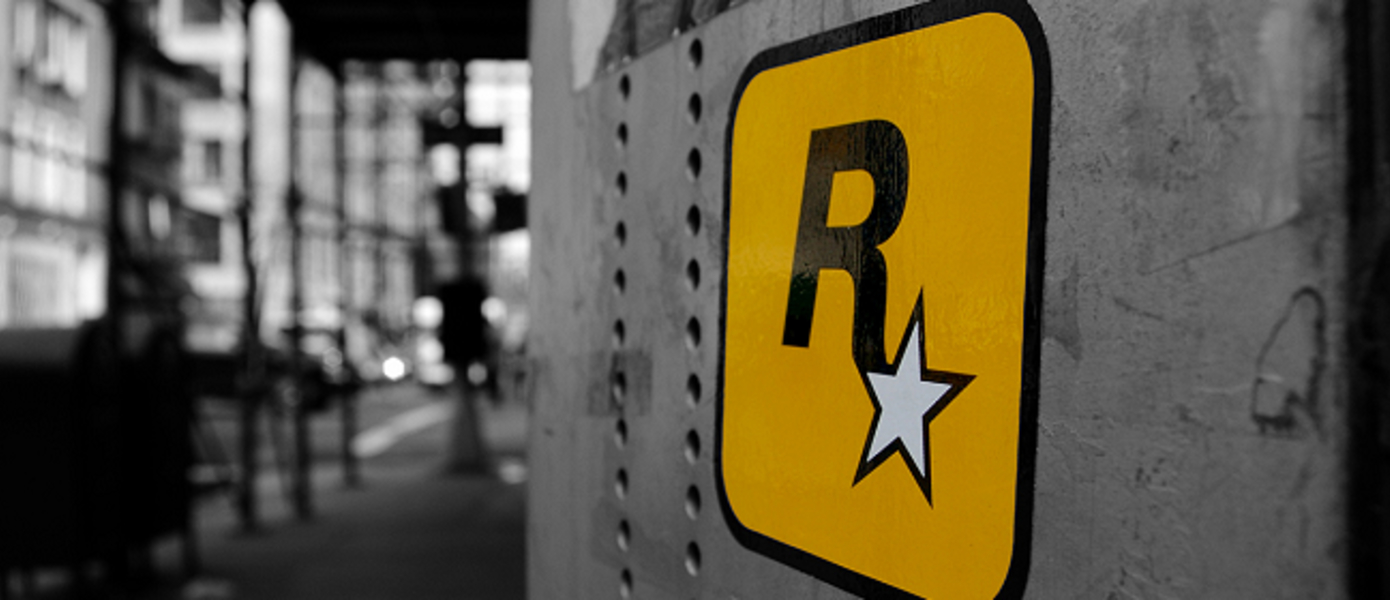
Of course, what happened hit the studio staff hard. A lot of line and key employees quit: those who worked from the very beginning and believed in the honesty and integrity of the rebels, "rock stars", also left. Some set up their own game studios (although none ultimately achieved significant success), while others left the industry for good. Someone, unable to bear it, generally took their own lives. At some point, a psychic was even invited to the studio to “remove the damage” ...
Epilogue
And in the end Rockstar did it. Even with heavy losses, the company survived the crisis and withstood the pressure of financial storms, reputational losses and an internal corporate crisis. The place of the departed employees was taken by newcomers with burning eyes, ready to implement even more ambitious plans of Sam Hauser. A little more - and the sequel to Grand Theft Auto will again take over the world, and the studio will once again become one of the flagships of the game dev. And the history of "hot coffee" will remain an example of the fact that even the most successful studio can make strategic mistakes and be on the verge of collapse.
